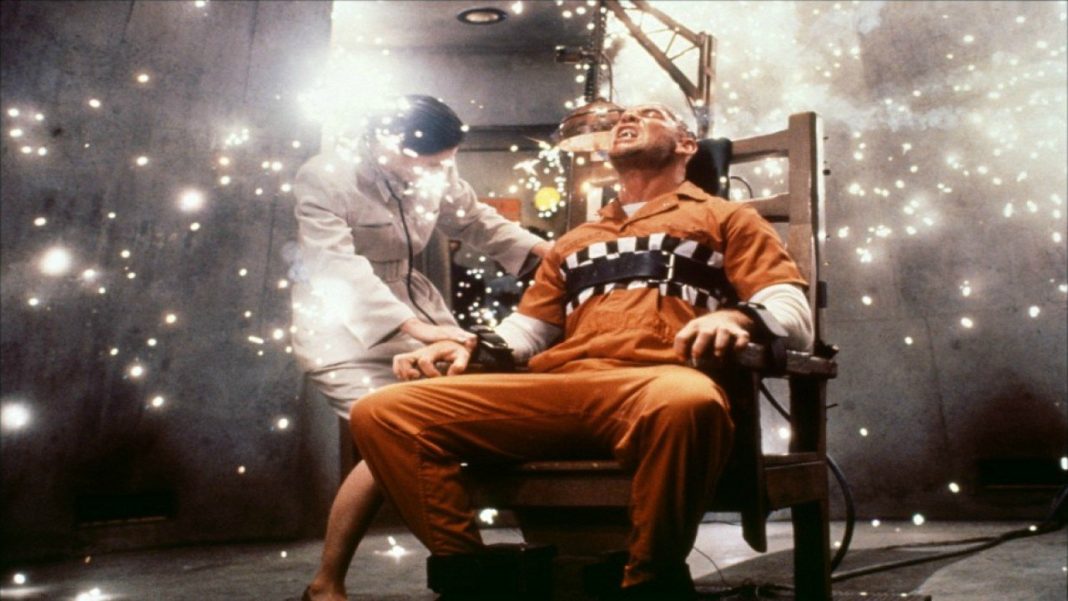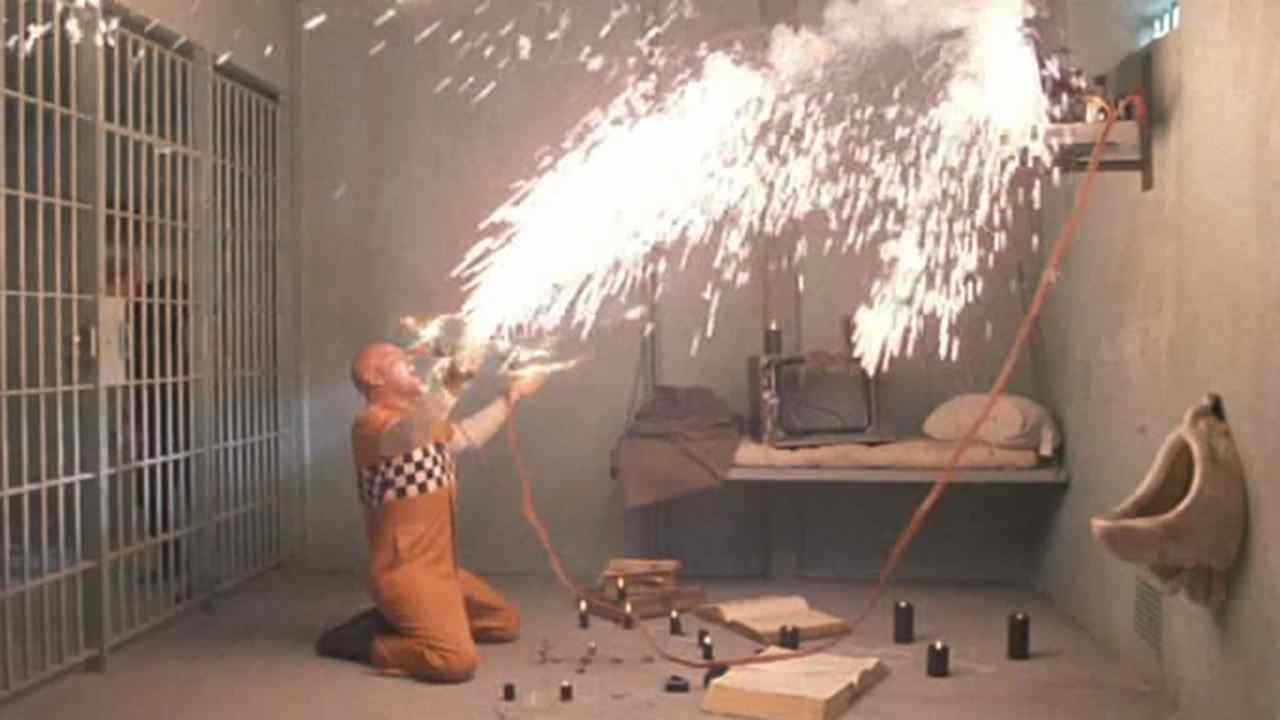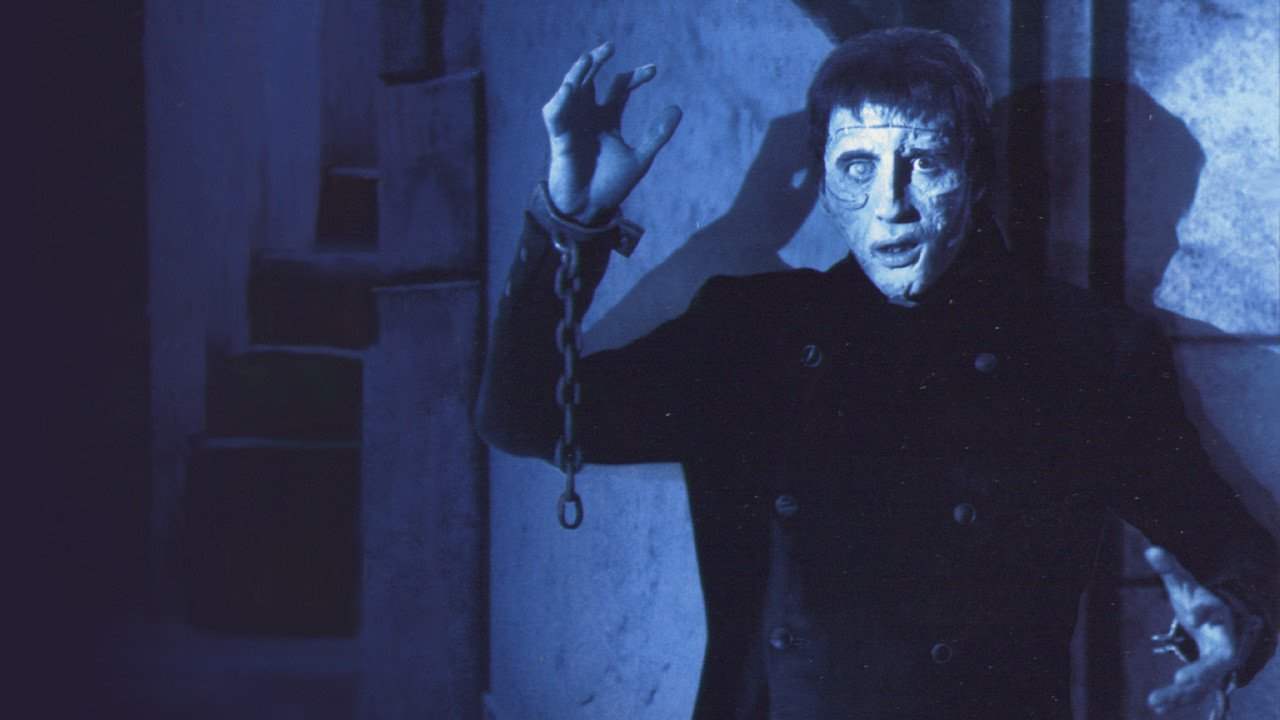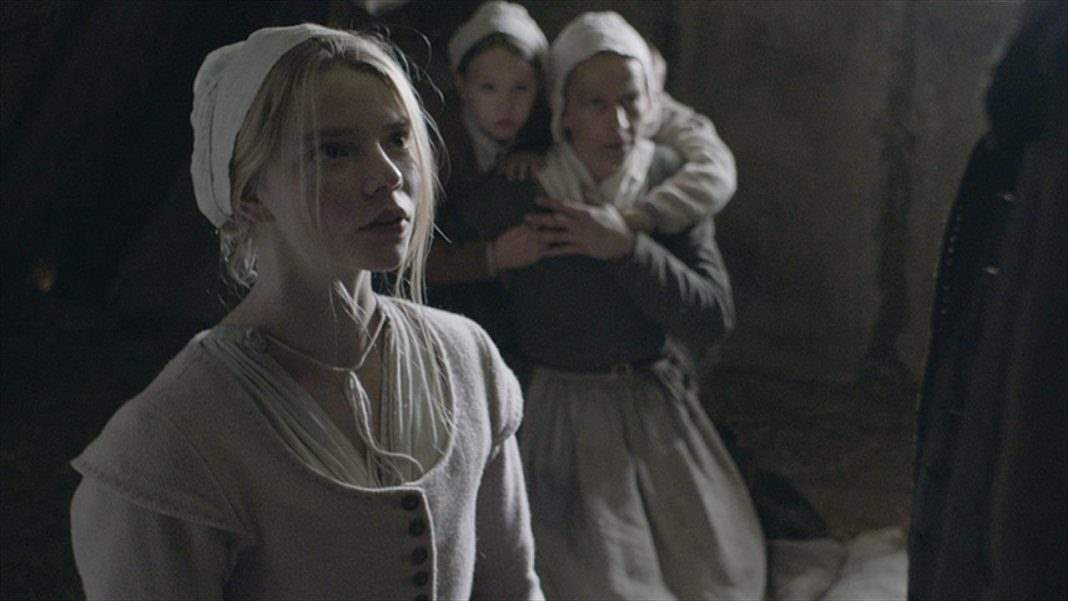Shocker, in some ways, feels like Wes Craven’s most commercial movie. The first thing that everyone usually points out, once they get done complimenting the soundtrack, is that it was a clear attempt to create a new franchise. A new Freddy Krueger, in fact. The second criticism that comes up is that Shocker feels, in some ways, like several different films at once. This is very true: It goes from an intense psychological thriller, to a body-hopping movie, to a horror-fantasy about a killer who can move through electrical currents, specifically TV’s. But if you look at Craven’s career at the time, where he was at in the industry and what he was doing, all of those decisions in Shocker make sense.
Wes Craven was a genius filmmaker and a genius in general. He brought a level of intelligence to everything that he ever did. Shocker was not, as some believe, the one movie where he suddenly didn’t know what he was doing. He had a clear purpose and a clear message and even if that message may not be as spelled out as The People Under the Stairs, it’s still there.
Fans tend to think of the 1980’s as a very successful time for Wes Craven. In fact, a lot of fans consider it to be his heyday when that really couldn’t be further from the truth. He had had much more success in the ‘70s and would see even greater success in the ‘90s. Swamp Thing had been a major disaster and it’s hard now to look back and see how much that hurt his career at the time, but it really did. He went from being this notorious director, everyone wondering what he was going to do next, to not even being able to get work. And he wasn’t able to get work. Swamp Thing was supposed to be his breakout film and even though it’s found a cult audience now, it really crashed and burned.
The Hills Have Eyes Part II, another movie that was supposed to rejuvenate his career, also crashed and burned. While it wasn’t necessarily a failure for him as a filmmaker, per se, it was probably the biggest upset of his entire career.Of course, right after that shoot he went into production on his most successful film, A Nightmare on Elm Street. But from Nightmare he went right into Deadly Friend, which put him right back where he had been before, almost as if Elm Street had never existed.
So for the bulk of the 1980’s, Craven was forced to work in television, just to keep the lights on. For the most part, he hated it. He wanted to be making movies, but he couldn’t get the work directing films and was even wondering if that was an opportunity he was ever going to see again.
After the moderate success of The Serpent and the Rainbow, Craven returned to writing and directing an original feature and it makes perfect sense that Shocker would be it. There’s really nothing else he could have done at the time, at least nothing that would have been as personal or impactful. For all intents and purposes, Shocker is Wes Craven’s “Kill Your TV” movie. It was nothing against the idea of television, per se, only a backlash against this thing he’d been stuck in for so long, a business that was even cheaper and quicker than he had had to be with films.
 While Shocker may feel like several different movies at once, seguing from one completely different mythology into another, TV is the constant. We practically open and close the film with television, it literally guides us through the entire picture. Major chunks of the plot, from beginning to end, are told through various TV news reports. These aren’t small things, either, but major bits of backstory on Pinker and even murders that we don’t get to see on the screen. This makes television an additional narrator in the piece, as well as—by the end of it, at least—something of a villain.
While Shocker may feel like several different movies at once, seguing from one completely different mythology into another, TV is the constant. We practically open and close the film with television, it literally guides us through the entire picture. Major chunks of the plot, from beginning to end, are told through various TV news reports. These aren’t small things, either, but major bits of backstory on Pinker and even murders that we don’t get to see on the screen. This makes television an additional narrator in the piece, as well as—by the end of it, at least—something of a villain.
The fact that Shocker feels like at least three different kinds of movies at once makes perfect sense in this context. It almost feels like a sort of audience participation and the abrupt segues between these various plot points and styles give the entire film an overall feeling akin to flipping through TV channels.
 As out of place as it might seem at first, Shocker is actually building us to that insane, fun, bizarre climax right from the very beginning. At that point, subtlety was out the window and Craven was eating up all of the TV that immersed the culture at the time and spitting it right back out at the viewer. That might actually be the biggest, most apt comparison between Horace Pinker and Craven’s perennial boogeyman Freddy Krueger.
As out of place as it might seem at first, Shocker is actually building us to that insane, fun, bizarre climax right from the very beginning. At that point, subtlety was out the window and Craven was eating up all of the TV that immersed the culture at the time and spitting it right back out at the viewer. That might actually be the biggest, most apt comparison between Horace Pinker and Craven’s perennial boogeyman Freddy Krueger.
Shocker was Craven’s look at TV and how it had dominated society by the end of the 1980’s, completely immersing every aspect of pop culture. It was done very much from the viewpoint of someone who had labored in the television world until he just couldn’t stand it anymore. It was, I think, a more therapeutic film for Craven than it has ever been given credit for and is certainly a smarter movie than it gets credit for.
Yes, it’s Craven’s most commercial movie in some respects. It’s big, it looks slick and appears to have almost nothing beneath the surface to it, but all it actually proves is that there’s never nothing beneath the surface with Wes Craven. Whatever he did, whatever kind of project he did, he always had something to say. The flashiness of Shocker only adds to the overall point, which was to be a commercial entity, to be something both for and about the masses. Its message may be scrambled the first couple of times you see it, but it’s there. Scrambled or not, the signal transmits regardless.







